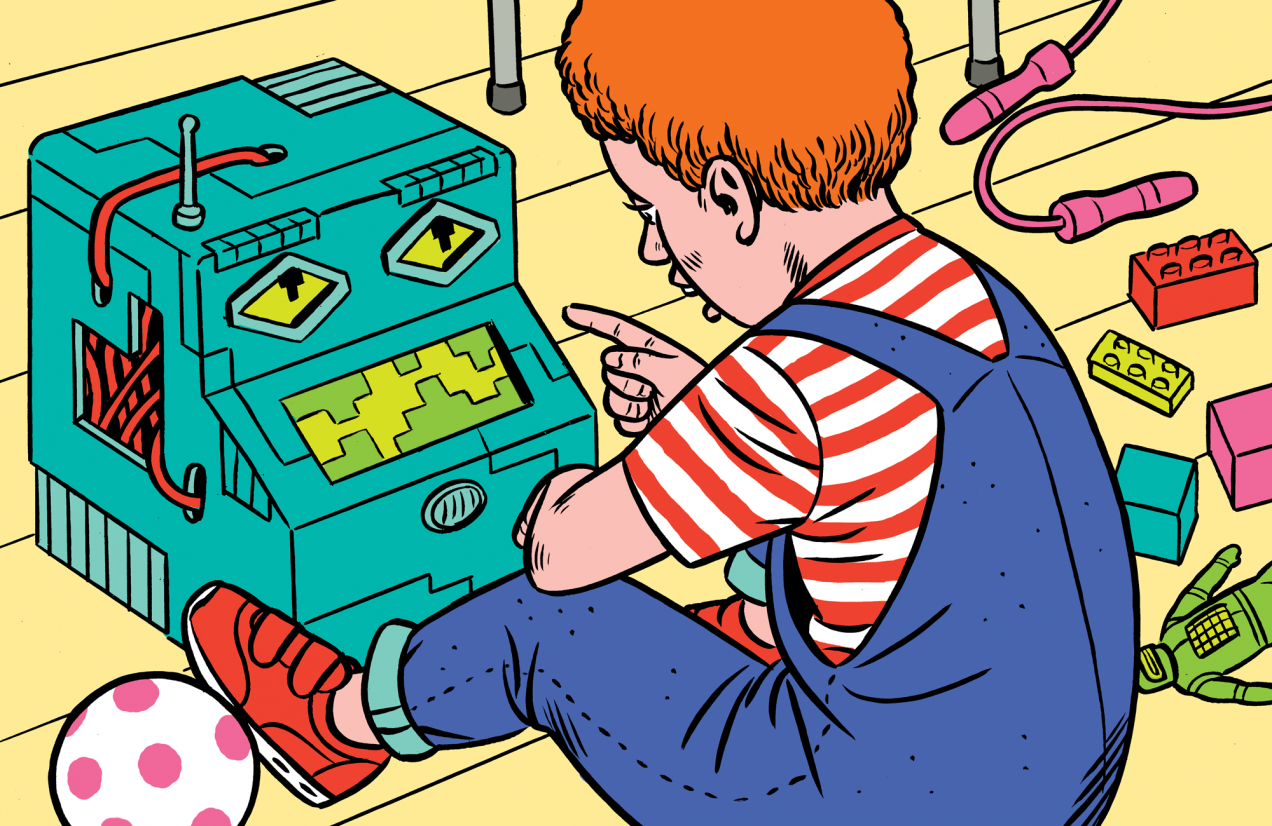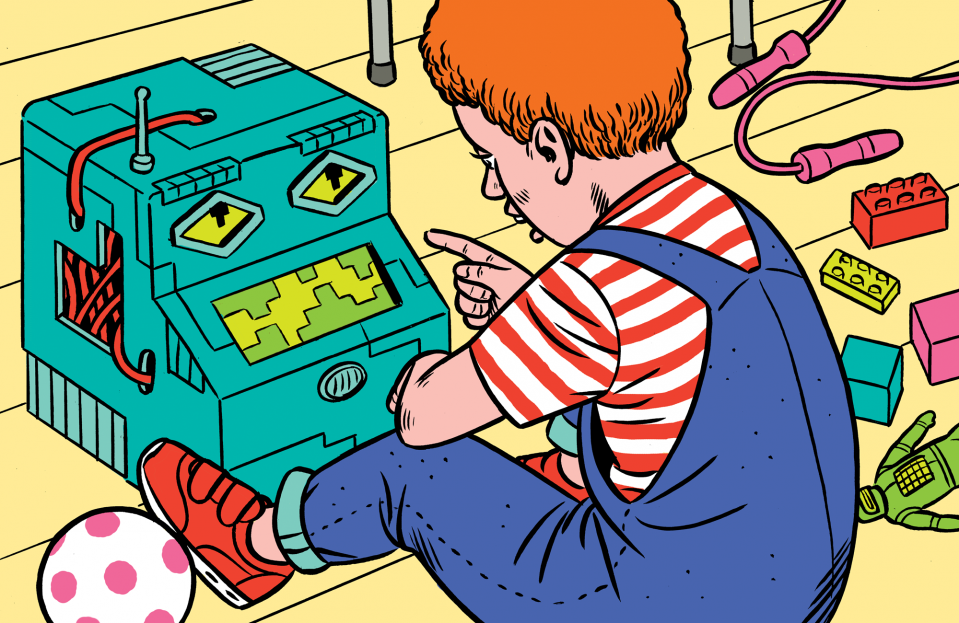

Connectivity
Our Best Stories of 2017
Our staff pick their favorites.

We asked each of our staff to suggest the best story they had written or edited in 2017—the most important, most interesting, or best executed. Here are their picks.
By Antonio Regalado
I found the scientists quietly thinking about how to make better—or just different—kinds of humans to colonize outer space. From our dreams of space travel, a surprisingly strong ethical argument emerges in favor of messing with an individual’s genetic code. —AR
By Rachel Metz
Kids like my four-year-old niece Hannah are growing up from infancy with digital assistants, and it’s time to start talking about what effect it will have on them. My story attempted to start a serious conversation on an under-explored topic despite the scarcity of academic research. —RM
By James Temple
In this piece I looked at several of the most promising approaches to geoengineering—modifying our planet to limit the impacts of climate change, as opposed to reducing the greenhouse-gas emissions that cause it—and explained why scientists are increasingly eager to explore them. I believe it’s the closest look any publication has taken at “cloud seeding,” a method for letting more radiation escape into space. And it underscores the growing dangers facing a society reluctant to take the drastic action needed on emissions. —JT
By Martin Giles
The wave of large cyberattacks on companies like Equifax and Uber have led to knee-jerk reactions in Congress. Here I highlighted the folly of draft legislation that would let private companies go chasing after hackers themselves rather than leaving the job to the FBI and other government agencies. —MG
By Jamie Condliffe
On January 3, I explained some of the problems with Bitcoin’s high value, then $1,000. What a difference a year makes ($15,000, if you’re counting). Twelve months on, some of the critiques still hold—but really this piece serves to highlight the cryptocurrency’s breathtaking rise. Did somebody say “bubble”? —JC
By Mike Orcutt
To many technologists, the perfect use for a blockchain—a secure distributed ledger such as the one that runs Bitcoin—is to share vital medical information between doctors and patients. There are a lot of “blockchain for X” stories, and its easy to dismiss them as hype, but in health care I think the idea is worth paying attention to. —MO
By Jackie Snow
Most AI makes decisions opaquely, and that makes it hard to catch when those decisions are unintentionally biased, as they can be if the algorithm or the data used to feed it are flawed. This problem is only going to get worse as AI is used more widely. The paper documented in this story is the kind of research we need more of if we are to understand the systems whose decisions increasingly shape our lives. —JS
By Erin Winick
Most job automation stories are about blue-collar work. In this one I took a deep dive into a profession that sounds as if it ought to be far from fears of robot takeover. What I found was that not all lawyers need to be worried—but some definitely do. —EW
By David Rotman
Automation doesn’t just eliminate jobs; those jobs losses, in turn, have an impact on politics. Yet we still have no policies for dealing with these changes. In the wake of the 2016 U.S. presidential election, I looked at the role the changing job market played in the outcome and what political leaders should be thinking about next. —DR
By Will Knight
China is rapidly become AI’s new superpower. The government is investing heavily in the technology, and its researchers are benefiting from access to huge amounts of data. But rather than being threatened by China’s achievements, Will Knight argued in this in-depth report from the country’s tech hubs, we should look to learn from them. —David Rotman
By Elizabeth Woyke
The fifth generation of cellular connectivity (5G) could make mobile Internet speeds 10 to 20 times faster when it comes online in a few years. But few people understand what it will entail, or the incredible amount of R&D required to develop it. This story explains the technology and how it will be used, and shows how one major wireless carrier is helping bring it to life. —EW
By David Byrne
When I read David Byrne’s blog post about how technology may be dehumanizing us, I knew our readers would love it. Amazingly, he agreed not only to a reprint, but to have us re-edit the whole thing, even adding a few bits about his own reluctance to interact with other people. The result was a dash of insight into the legendary musician’s perspective on the world, coupled with a compelling warning about how personal technology may already be shaping our behavior in worrisome ways. —Michael Reilly
By Emily Mullin
In July, we broke the story that a New York fertility doctor had started a company to sell a controversial “three-parent” IVF technique that remains illegal in the U.S. The doctor, John Zhang, originally developed the technique to prevent couples from passing certain rare diseases on to their children. But his company began advertising the treatment as a cure for infertility in older women. The story raised both ethical and legal questions about selling a largely unproven and potentially risky procedure to women desperate to have children. —EM